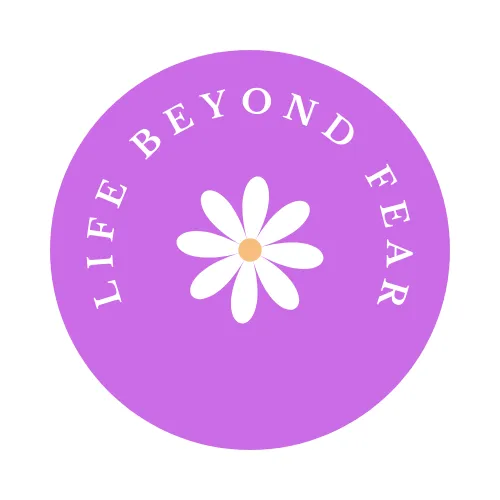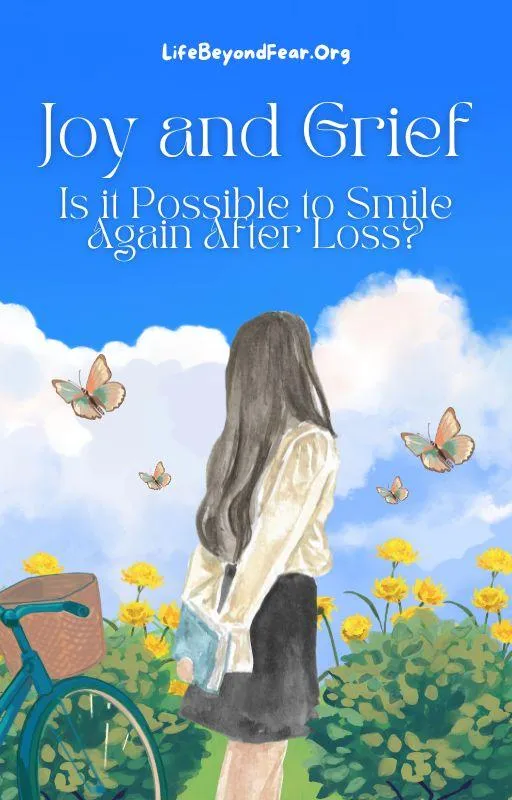There’s a whole life out there, beyond fear!
Discover the hidden purpose of fear as a catalyst...
for unveiling your true potential. Are you interested in being Coached? For more information, please contact me via Facebook:
Life Beyond Fear
Feel freedom, and let life become an adventure.

Life

Beyond

Fear

Live a Life Beyond Fear
Transform every moment of fear into a gateway for profound self-awareness and personal growth.
Join us in exploring how fear can be your ultimate guide to transformative insight and personal evolution!
Live a Life Beyond Fear
Are you interested in being coached beyond fear? Please, let me know. Messaging can be done via Facebook. Thank you.
Life Beyond Fear
Open your arms to adventure
Life Beyond Fear
Alchemising Fear
Unveiling the Hidden Purpose of Fear: A Journey to True Potential.
Discovering the hidden purpose of my fear was a game-changer in unveiling my true potential. Each moment of fear has transformed into a gateway for profound self-awareness and personal growth. This journey has been, to date, my biggest achievement.
Join me as we explore how fear can become your ultimate guide to transformative insights and personal evolution!
With passion, I delve into transforming fear into joy and love, and I’m excited to share these insights with all of you. Your incredibly kind words and unwavering support mean the world to me. If you feel moved to contribute and support my work, you can do so here.
Your generosity is deeply appreciated, and I thank you from the bottom of my heart for your donations.


"There is nothing to fear, but fear itself." Franklin D. Roosevelt
"Fear is the whisper of doubt in the darkness. Embrace it, and let it guide you to your greatest light." Life Beyond Fear
"Fear is not the enemy but the catalyst that propels us towards our true potential." Life Beyond Fear

Propel Beyond Fear
Imagine a life beyond fear.

A World Beyond Fear
What would the World be like viewing fear as a catalyst for change?

Live a Life Beyond Fear
Every day can feel like an adventure!
Life Beyond Fear
Life Beyond Fear Blog

Reconciling Joy and Grief
Reconciling Joy and Grief: Embracing Happiness without Guilt
Is it Possible to Smile Again After Loss?
In the complex journey of grief, moments of joy can be bittersweet—tinged with guilt that dampens the light they bring.
The paradox of experiencing happiness after the death of a loved one can leave you questioning the legitimacy of your feelings.
Are you betraying their memory by finding joy again?
How can you honour your grief while permitting yourself to find fulfilment in a future shaped by compassion and healing?

The Dance of Grief and Guilt
Grief is a deeply personal process, an emotional tapestry woven with threads of sadness, anger, longing, and occasionally, moments of relief or happiness. These moments can trigger guilt, arising from the belief that happiness signifies forgetting or dishonouring a loved one. This guilt may also stem from societal expectations, internalised beliefs about mourning, and the pressure to conform to perceived norms of grieving.
Signs of Guilt in Grief
1. Joy-Survivor’s Guilt: Feeling undue responsibility for finding happiness when a loved one can’t.
2. Emotional Inhibition: Suppressing positive emotions to maintain an appearance of mourning.
3. Self-criticism: Judging yourself harshly for seeking normalcy or pleasure.
4. Fear of Judgement: Worrying about how others perceive your return to happiness.
5. Mental Reprimands: Reminding yourself you "should" still be grieving, thus denying joy.
Healthy Navigational Tools to Process Guilt and Grief
1. Acknowledge Your Feelings: Recognise that both grief and happiness can coexist. Validate your right to feel both without judging yourself.
2. Redefine Grieving: Understand that grief is not a linear path or a prescribed set of emotions. Each person's journey is unique.
3. Remembrance with Joy: Honour your loved one by recalling happy memories and sharing their legacy, which can bridge the gap between remembrance and joy.
4. Seek Support: Engage in support groups or therapy where you can express both grief and joy in a safe, understanding environment.
5. Cultivate Compassion for Yourself: Practice self-compassion and affirm that finding joy does not equate to forgetting or minimising your loss.
6. Create Rituals of Healing: Develop personal rituals that offer a space for renewing your spirit and celebrating life—not as a replacement for grief, but as its complement.
Embracing a Future with Compassion
In learning to navigate the tension between grief and happiness, you create space for healing and fulfilment. By allowing joy to coexist with your memories, you honour your loved one's impact on your life as you move forward. It’s about weaving the presence of their memory into the fabric of your life—recognising that being truly alive means embracing the full spectrum of human emotions.
Reflection
As you reflect on your journey, what small steps can you take today that honour both your grief and the joy that life still holds for you?

Life Beyond Fear
★★★★★
Would you like to leave some feedback? All comments are welcome, thank you.

Life Beyond Fear
★★★★★
We feel inspired to share profound and insightful articles with you. Do you have a subject you'd like us to explore? Please, do let us know. Thank you.
Life Beyond Fear
"Fear is the silent partner of growth. When you face it head-on, you discover the power you've always had." Life Beyond Fear
"In the face of fear, remember: the only way out is through. Embrace the journey, and you'll find the strength within." Life Beyond Fear

Copyright ©LifeBeyondFear.Org. All Rights Reserved.
Unlock the secrets to improving relationships at work, at home, and most importantly, with yourself. Discover the transformative power of meaningful connections and self-understanding today!
